Not all team building companies are alike. Here’s how to hire one that will send true professionals to train your group, with an agenda to help you meet your goals.
Team building workshops can be one of the best training investments you’ll ever make. The really good ones are effective at helping you reach your goals, as well as fun. Well-structured team building workshops can produce tangible results with your team in areas like communication, collaboration, and working effectively with a diverse set of minds.
It’s Important to Be VERY Selective
However, if you aren’t choosy when it comes to selecting the training group you hire, that investment may not pan out the way you intended. In fact, it can feel like more of a drain than an investment… a drain on your time, your budget, your patience, and your energy.
The best training groups will provide your team with a blueprint for building on the skills they learn in the workshop. Teams come away with a fresh perspective on everything from how they communicate with colleagues to what sort of input they are likely to contribute in the future.
Do You Want to Just Play Games or Do You Want Results?
The problem is, how do you tell the difference between the sort of training group that offers these benefits and one that offers just silly games (or worse, a bad time!)?
Before you hire a training group for your team, take a moment to glance over these twelve traits of highly effective training companies. They’ll help guide you towards a company who can help you reach your training and teamwork goals. By aligning yourself with the best, you’re sure to see a higher return on investment of your training dollars.
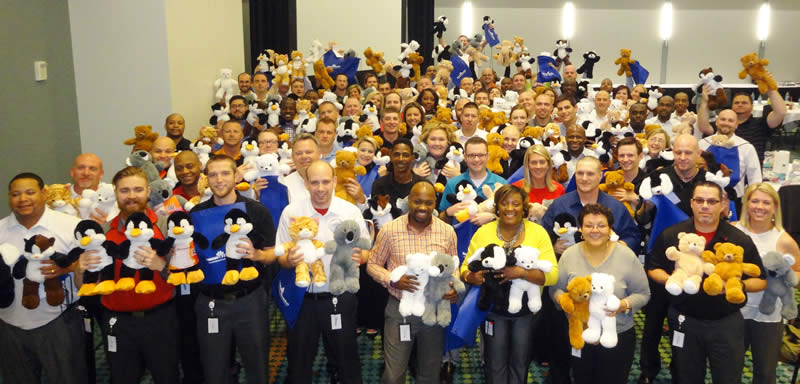
The 12 Traits of a Great Training Group
1. They Hire Only the Best Facilitators
If you’ve been navigating the tricky field of team building, group training, and event planning for some time, you’ve probably noticed this: there’s a huge disparity among the levels of quality, talent, and experience of the facilitators who work in this business.
Some of your first questions to ask a potential training group should be about their facilitators. These next few traits will help you determine who has the best facilitators.
2. The Facilitators Aren’t Merely “Cheerleaders”
Sure, there are some great cheer leaders out there, who may have at one time made wonderful camp counselors. They know how to play games and how to give a good yell to make themselves heard.
But are they working towards any goals other than having fun?
3. The Facilitators Aren’t Merely “Talking Heads”
There are also some great users of PowerPoint out there, too. They feel confident standing in front of large groups, lecturing away on important issues.
But are they engaging the group at all?
They give a well-informed presentation, never mind that your group might be falling asleep or checking their email on their phones.
Some group training leaders are experts in their field, or they’ve been training for decades using their talking head methodologies. However, there’s a new standard in training and team building, and the talking head just doesn’t cut it any more (did it ever?).
Of course it’s important to know your stuff and PowerPoint slides can be very effective, but sometimes a facilitator can lose sight of what’s important- engaging everyone so they feel excited about the topic at hand.

4. The Facilitators Have Experience With Companies Like Yours
One important question to ask before you hire a training group is, “what other companies have you worked with?”. If the answer is a string of companies that are nothing like yours, then you might want to keep looking. If you’re a Fortune 500 company, you’ll want to see other big names on the clientele list. If you’re a nonprofit, look for other nonprofits.
You don’t have to be in the same business, but companies with a similar culture will have similar demands, goals, and outcomes as yours. A training group that’s been successful with companies similar in structure and culture to yours will more likely work well with your group, too.
5. The Facilitators Have Business Experience, Too
There are two types of facilitators running team building and training workshops: those who are simply good at playing games, and those who have experience in business.
In other words, either they get corporate culture, or they don’t.
Why is business experience important in a training group leader? When facilitators know corporate culture from first-hand experience, they know more about the groups they’re working with.
The culture, the challenges, and the goals of any group should all come into play during a successful workshop. After all, if the group can’t relate their experience back to the work environment, how are they going to take what they learned and use it?
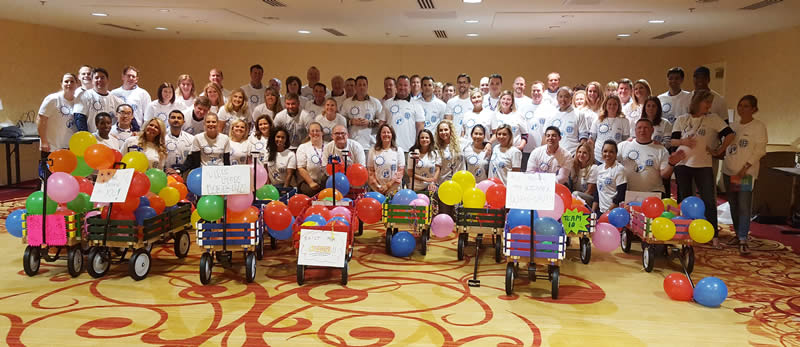
6. Their Frontline Contact Asks You Lots of Questions Beforehand
The only way a good training company can create a customized, goal-centered, engaging and successful workshop is to know a lot about the group they’re serving.
Therefore, they should be asking you questions about your goals, your group, your company, and more. Sometimes this won’t be apparent until you’ve booked a consultation with them, but sometimes you can tell right from the start. If they’re all about listening to you as well as answering your questions, then you know you’re on the right track with a company that’s going to work in your best interests and produce a workshop that actually helps you reach your goals.
7. They Respond to Inquiries Like They Want Your Business
How a training company behaves from the get-go is usually an indicator of how the actual training will proceed. If you email them and get an auto-responder and then… nothing, well that’s not a good sign.
Increasingly, customer service is how we make our purchasing decisions, and any business worth its salt should know that. Therefore, unless you see impeccable customer service right from your initial contact with a training group, move on and find a company that really wants to work with you.
8. They Answer Your Questions… All of Them
Arm yourself with well-scripted questions before you talk to prospective training groups and you can learn a lot. Beyond the basics, don’t be afraid to ask whether their training can help you achieve a specific goal of yours.
Maybe it’s buy-in of new corporate initiatives. Perhaps you need morale improvement, or maybe you have very targeted training you want delivered. As the representative how they will help you meet those needs.
If they are truly goal-oriented and focused on helping their clients improve workplace skills, they’ll have no problem answering these types of questions.

9. They Make it Easy On You With Time & Location
A training group that can come to you is key. They should display flexibility in both time and location so you’re not wasting time (and money) transporting your group to a far-flung location.
Likewise, you should be able to set any time for your event, too. Want an early-morning breakout session to start an annual conference? That shouldn’t be a problem. Need an after-work session that starts at 7pm? Yup, that should be possible, too.
As for location, their trainer should be able to meet your group anywhere- on site, at a nearby hotel conference space, or any convention center in the country (yes, the best of them will travel for you, too).
10. They Take Care of Logistics For You
Often, training sessions and workshops come with all the trappings of a full-blown event. Charity workshops are one example of training that necessitates a high level of coordination.
A good training company will handle everything for you: coordination with a charity group, transportation of donations, workshop supplies, cleanup, venue selection, coordination with venue contacts, and more.
11. They Offer Customizable Workshops
Maybe a team building company offers a tried-and-true formula that “works every time”. But unless they can customize their product to meet the customers’s needs and goals, it may not be the best choice.
Some companies don’t customize their training because they simply don’t have the expertise. It takes knowledge of instructional design, experience with what works, and a goal-centered approach.
Make sure the training group you hire can customize your event for whatever goals you might have. And if you don’t have any defined goals? They should be able to sit down with you and help you define them, even if they are just to offer your group a chance to “bond”.
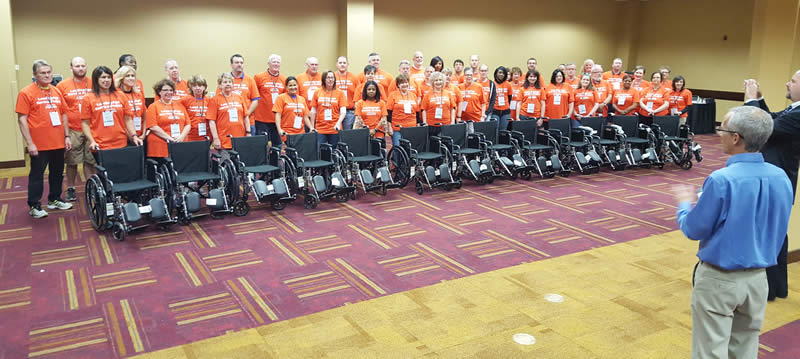
12. They Have an Industry Leader at the Helm
Some of the best training groups have a visionary leader at the top, who inspires excellence with his or her vision and experience.
Then again, some training groups are just in it to make money. Which do you think offers a better product? Look for a founder or CEO who speaks at outside events, has been published, or who otherwise shows dedication and passion in the field. It often means the company is deeply inspired to serve you better.
13. They Use Ice Breakers to Start Workshops
Effective training or team building can only be carried out in a supportive environment that’s conducive to experimentation and learning. One of the biggest barriers to that is when everyone feels put on the spot, self-conscious, competitive, or guarded.
Ice breakers are used by good teachers all over the world. They’re a classic way to gather the energies of any group and direct them where they ought to go, which is towards a positive attitude where everyone participates and tries new things, and where everyone is open to new ideas.
Once a group is properly warmed up and trust is built, participants begin to let down their guard a bit so they become less afraid of failing and more focused on reaching higher for new ways to see themselves and each other at work.
That’s how you unlock potential in a group! And it all starts with ice breakers.
14. They Stress 100% Participation
In the office place, studies indicate that teams are more efficient when everyone is participating so there’s a diversity of input. It leads to creative problem solving and other good things that make companies great.
That’s why in training workshops, it should be the same way. Look for indications that the group you hire is all about getting everyone involved. That can mean a sensitivity to individual needs of group members.
For example, what accommodations do they make for participants who might have physical challenges? Are the workshops too “active”, sporty, or competitive? Do they seem skewed toward a younger and more athletic audience? If so, then their workshops might not be geared towards 100% participation the way you need.
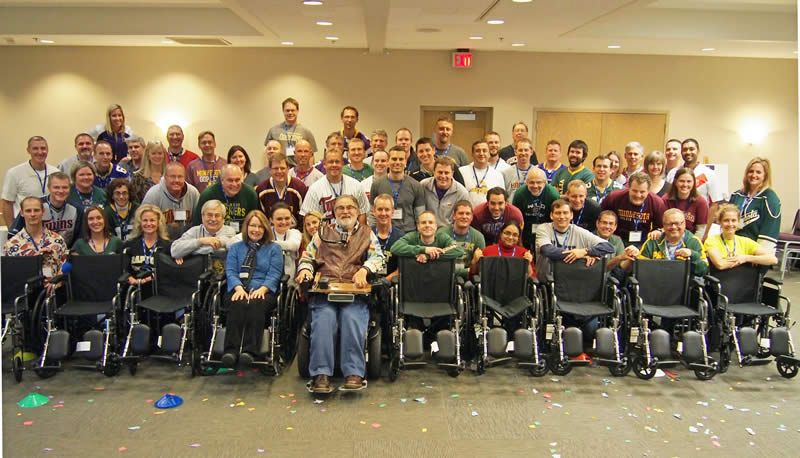
15. They Stress 100% Engagement
Nothing great will come of training if the group isn’t actively engaged in the activities. No insight, no improvement in skills, and no positive change back in the office.
Facilitators should be well-versed in getting a broad range of personality types to engage in their training sessions. That goes for sales training to large groups, executive leadership workshops for small groups, and everything in between.
In fact, much of the time participants represent a wide swathe of a company, with a mix of departments, plus everyone from customer service staff right on up to the CEO all taking part in a workshop together. If a facilitator can’t engage everyone, it’s a waste of time and money for you.
16. Their Workshops Offer Much More than Just a Fun Time
Beach volleyball, haunted mansions, and even white water rafting have at one time or another qualified as training or team building. But if you narrow your definition of “training” and demand that you get more for your investment, you’ll find that there are lot of “training groups” out there offering just a fun time. There’s bonding taking place… but training?
You could send your team to a microbrewery for a good time and get the same return for your money! Look for a company who offers value for the dollar. A good time doesn’t always mean there’s any work being done on skills or there’s any stronger alignment with company culture going on.
17. Their Instructors Look for Teachable Moments
A lot of excellence in teaching and leading workshops takes place on the fly. Experienced facilitators can move about a room and identify “teachable moments” that can show participants what they need to know to become better employees.
They can also help participants tie in the ongoing activities with real life scenarios, as they happen. That way, they get personal attention during group activities. That makes for deeper engagement, better learning, and more chance their insights and lessons will stick later on!
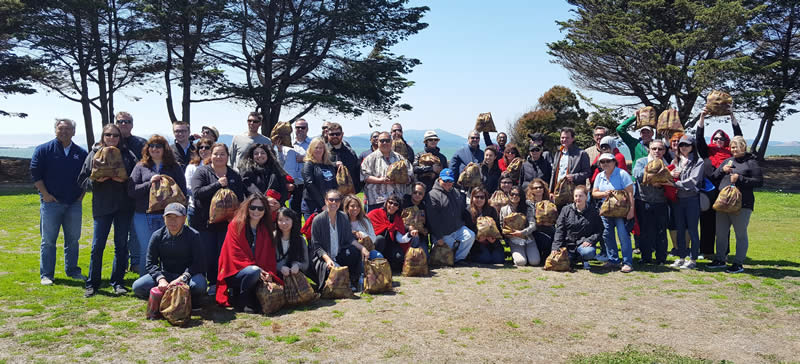
18. Workshop Activities Relate to Relevant Skills
It’s one thing to conduct a workshop or training that’s engaging, but is it relevant? Ask your prospective training group what relevant skills their workshops teach. Will the group learn better communication in the workplace or will they simply be learning how to talk about their feelings in a social setting? Remember, it all has to tie back to the office, and not all skills are completely relevant.
A training group leader or rep should be able to answer this easily. After all, if they’re not thinking about how their workshops teach relevant workplace skills, they’re not exactly working towards the same goals as their customers.
Workshop activities should in some way mimic workplace scenarios, or at least symbolize the types of interaction people encounter at work. That way, participants can relate their workshop experience back to how they interact at work.
19. There are Clear, Practical Take-Aways for the Business Environment
In addition to setting goals and helping their clients reach them, training groups should offer tangible results that continue to build in the future. Groups should come away with clear objectives and how to implement them once they’re back at work.
Ice breakers, hands-on activities, debriefing, good facilitators… these elements should all we working towards concrete take aways for the group. When participants come away with real knowledge and improved skills they can put to use right away in a practical business setting, you know you’ve hired a good training group.
20. Workshop Participants Can Expect to Improve Skills
It’s not enough to have relevant workshop activities, to have clearly-defined goals, and to give clear take-aways. A good training group will also provide their customers with an expectation to improve their skills.
What does that mean? It’s partly about empowerment- the sense that everyone has better output within them, and it’s just a matter of learning new ways to bring out their potential. It’s about confidence, it’s about skills, and it’s about working together… quite a lot for one little training session!
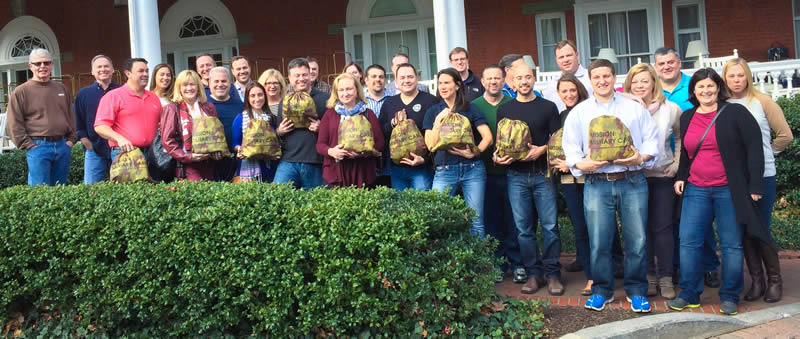
21. Workshops Incorporate a Debriefing
A team building activity can have all the right ingredients for success, but unless there’s some sort of debriefing to tie it all together and assess the results, all that good work is going to end once the workshop is over with.
To keep the momentum going long after the workshop has ended, skilled facilitators will work in a debriefing session towards the end of the session. This can take any number of forms, but the idea is to give participants a chance to discuss or learn about how to take workshop lessons with them when they walk out the door.
This is important because positive change isn’t something that happens over night. It takes well-designed training sessions led by skilled facilitators, followed by continuous reinforcement and lots of opportunities to practice new skills or put new insights into action. Debriefing helps all this come to pass.
22. Workshops Offer New Insights to Participants
Speaking of insights, there should be some! The best training groups offer new ways of thinking about the workplace environment. This includes new ways to think about communicating and collaborating. It also includes new ways to perceive events that transpire every day, with the goal of keeping a positive attitude. Fresh insight is how teams get better, and how companies grow to reach their full potential.
